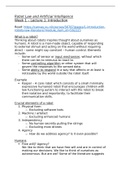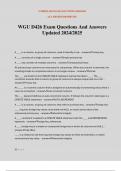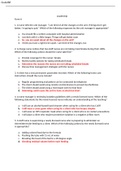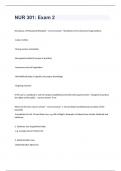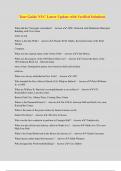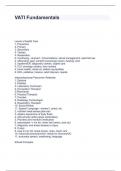College aantekeningen
Notes on the Introduction to Robot Law and AI (R_RLAI)
What is a robot? What are the elements of a robot? Who is liable for robots? What legal challenges does AI pose for the law? What is law? Who should govern the development of AI? Who is accountable for AI? Detailed notes surrounding the discussion about robots and the law.
[Meer zien]
